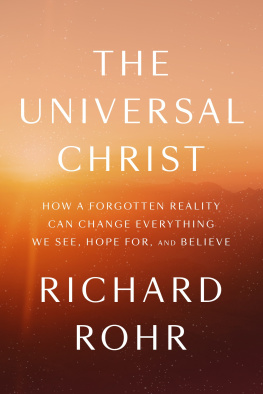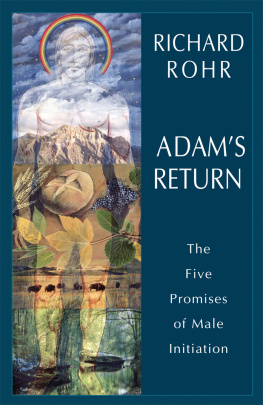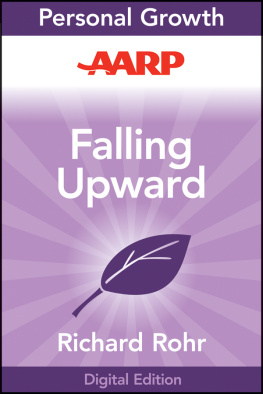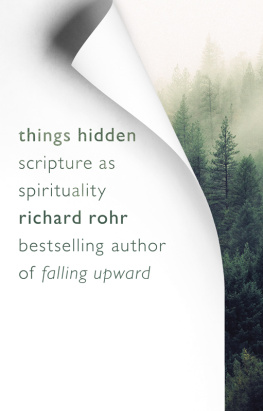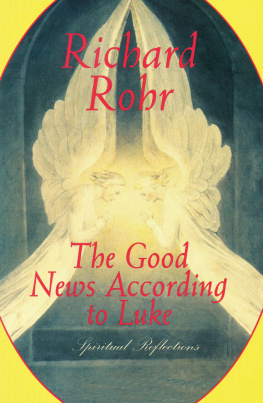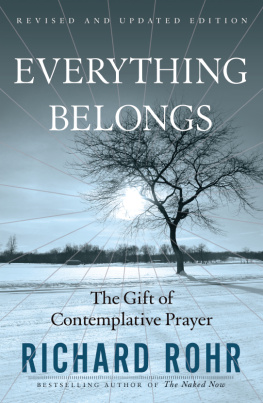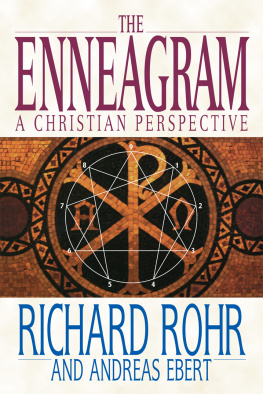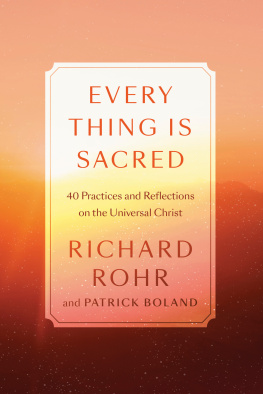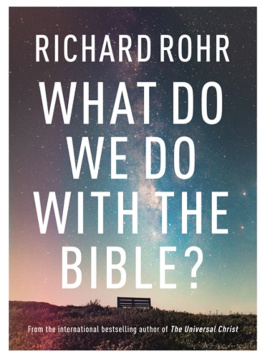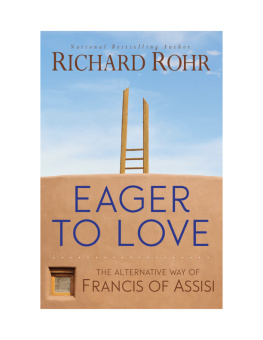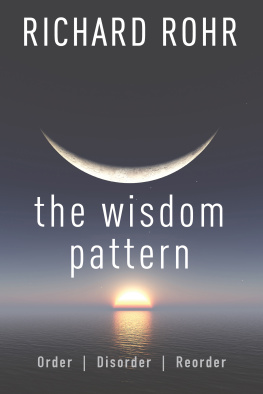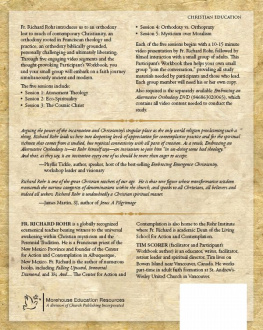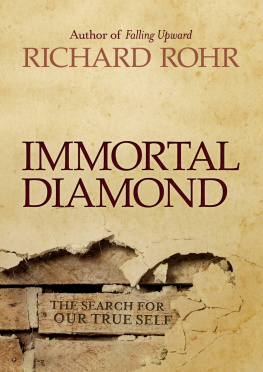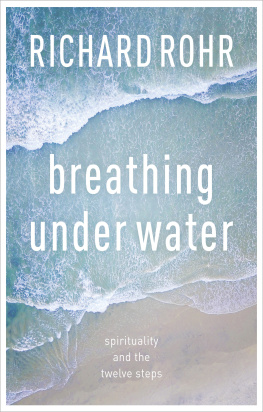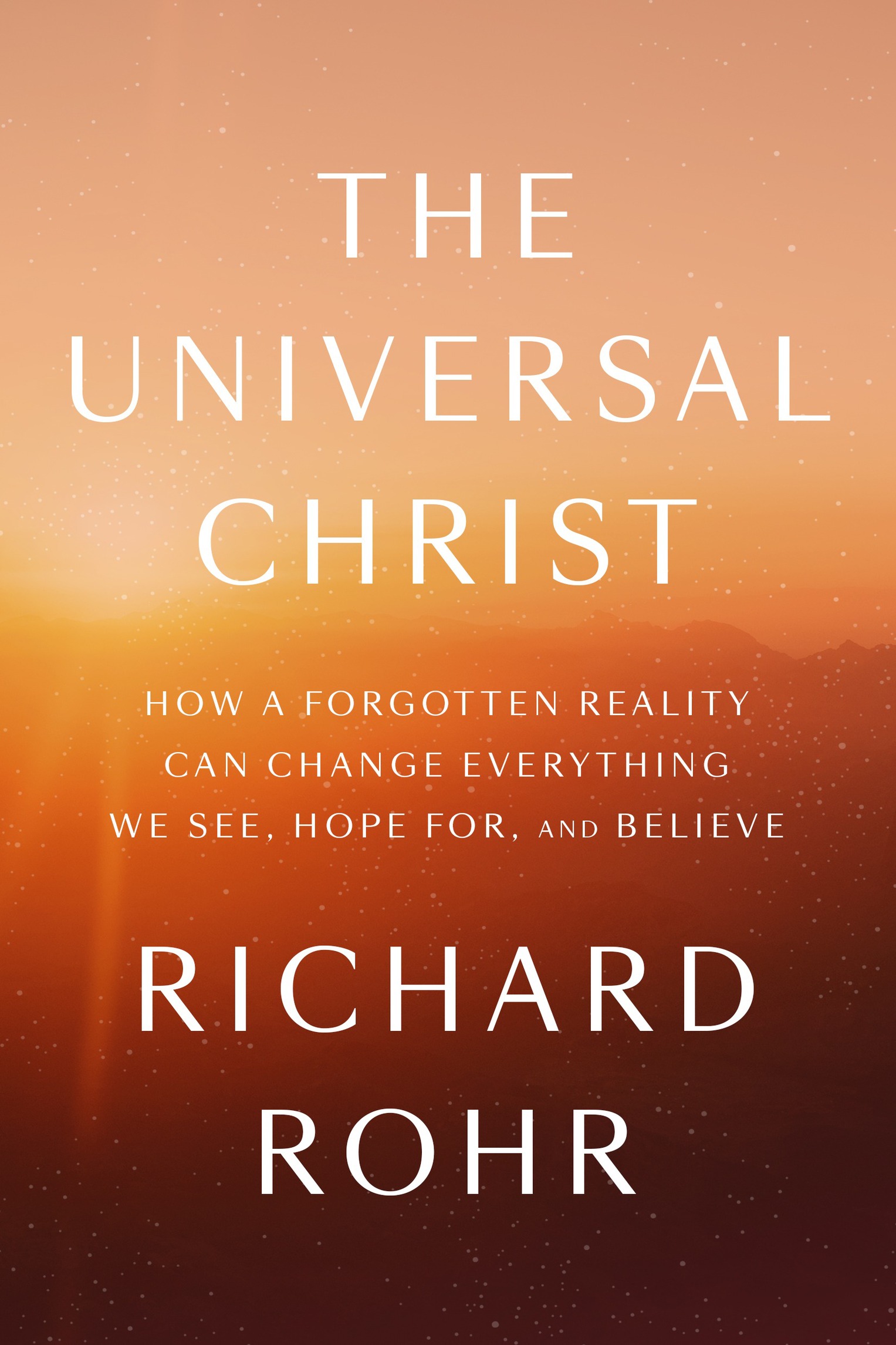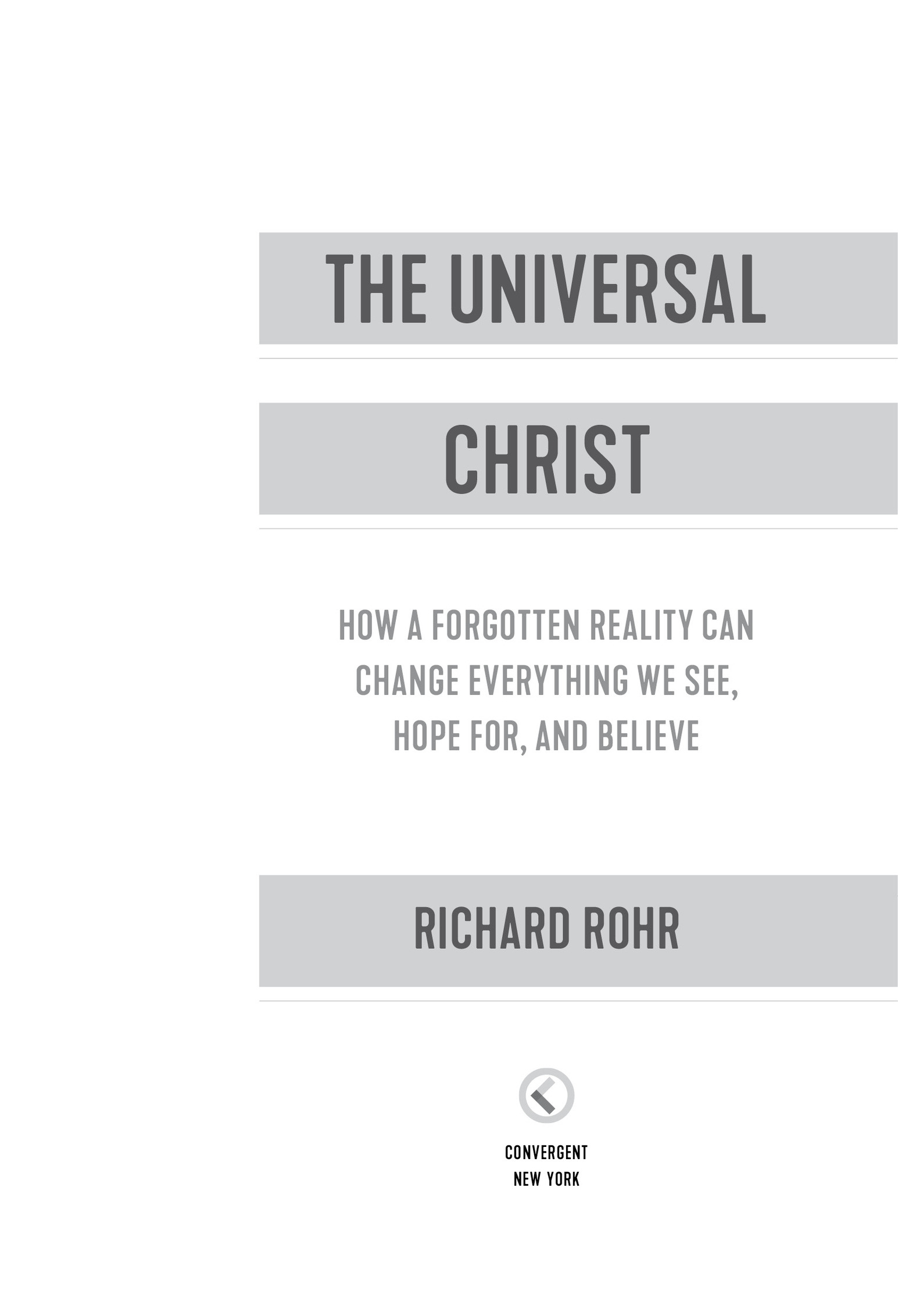Contents
Landmarks
Print Page List
Copyright 2019 by Center for Action and Contemplation, Inc.
All rights reserved.
Published in the United States by Convergent Books, an imprint of the Crown Publishing Group, a division of Penguin Random House LLC, New York.
convergentbooks.com
CONVERGENT BOOKS and its open book colophon are registered trademarks of Penguin Random House LLC.
Unless otherwise stated, Richard Rohr uses his own translation and/or paraphrase of Scripture. Father Richard draws from a variety of English translations including the Jerusalem Bible (JB), New American Standard Bible (NASB), New English Translation (NET), J. B. Phillips New Testament (Phillips), Revised Standard Version (RSV), and The Message. CAC practice is to reference chapter and verse for scriptural sources, but not to identify precise translations.
Love After Love from The Poetry of Derek Walcott 19482013 by Derek Walcott, selected by Glyn Maxwell. Copyright 2014 by Derek Walcott. Reprinted by permission of Farrar, Straus and Giroux.
Library of Congress Cataloging-in-Publication Data is available upon request.
ISBN9781524762094
Ebook ISBN9781524762100
Cover design by Sarah Horgan
Cover photograph: (sunset) Menset Photography/Getty Images; (star texture) Ievgenii Volyk/iStock/Getty Images
v5.4
ep
I dedicate this book to my beloved fifteen-year-old black Lab, Venus, whom I had to release to God while beginning to write this book. Without any apology, lightweight theology, or fear of heresy, I can appropriately say that Venus was also Christ for me.
The only really absolute mysteries in Christianity are the self-communication of God in the depths of existencewhich we call grace, and in historywhich we call Christ.
Fr. Karl Rahner, Jesuit priest and theologian, 19041984
I do not worship matter. I worship the God of matter, who became matter for my sake and deigned to inhabit matter, who worked out my salvation through matter. I will not cease from honoring that matter which works my salvation.
St. John Damascene, 675753
No despair of ours can alter the reality of things, nor stain the joy of the cosmic dance, which is always there.
Thomas Merton, 19151968
Contents
Before We Begin
In her autobiography, A Rocking-Horse Catholic, the twentieth-century English mystic Caryll Houselander describes how an ordinary underground train journey in London transformed into a vision that changed her life. I share Houselanders description of this startling experience because it poignantly demonstrates what I will be calling the Christ Mystery, the indwelling of the Divine Presence in everyone and everything since the beginning of time as we know it:
I was in an underground train, a crowded train in which all sorts of people jostled together, sitting and strap-hangingworkers of every description going home at the end of the day. Quite suddenly I saw with my mind, but as vividly as a wonderful picture, Christ in them all. But I saw more than that; not only was Christ in every one of them, living in them, dying in them, rejoicing in them, sorrowing in thembut because He was in them, and because they were here, the whole world was here too, here in this underground train; not only the world as it was at that moment, not only all the people in all the countries of the world, but all those people who had lived in the past, and all those yet to come.
I came out into the street and walked for a long time in the crowds. It was the same here, on every side, in every passer-by, everywhereChrist.
I had long been haunted by the Russian conception of the humiliated Christ, the lame Christ limping through Russia, begging His bread; the Christ who, all through the ages, might return to the earth and come even to sinners to win their compassion by His need. Now, in the flash of a second, I knew that this dream is a fact; not a dream, not the fantasy or legend of a devout people, not the prerogative of the Russians, but Christ in man.
I saw too the reverence that everyone must have for a sinner; instead of condoning his sin, which is in reality his utmost sorrow, one must comfort Christ who is suffering in him. And this reverence must be paid even to those sinners whose souls seem to be dead, because it is Christ, who is the life of the soul, who is dead in them; they are His tombs, and Christ in the tomb is potentially the risen Christ.
Christ is everywhere; in Him every kind of life has a meaning and has an influence on every other kind of life. It is not the foolish sinner like myself, running about the world with reprobates and feeling magnanimous, who comes closest to them and brings them healing; it is the contemplative in her cell who has never set eyes on them, but in whom Christ fasts and prays for themor it may be a charwoman in whom Christ makes Himself a servant again, or a king whose crown of gold hides a crown of thorns. Realization of our oneness in Christ is the only cure for human loneliness. For me, too, it is the only ultimate meaning of life, the only thing that gives meaning and purpose to every life.
After a few days the vision faded. People looked the same again, there was no longer the same shock of insight for me each time I was face to face with another human being. Christ was hidden again; indeed, through the years to come I would have to seek for Him, and usually I would find Him in othersand still more in myselfonly through a deliberate and blind act of faith.
The question for meand for usis, Who is this Christ that Caryll Houselander saw permeating and radiating from all her fellow passengers? Christ for her was clearly not just Jesus of Nazareth but something much more immense, even cosmic, in significance. How that is so, and why it matters, is the subject of this book. Once encountered, I believe this vision has the power to radically alter what we believe, how we see others and relate to them, our sense of how big God might be, and our understanding of what the Creator is doing in our world.
Does that sound like too much to hope for? Look back at the words Houselander uses as she strains to capture the sheer scope of what changed for her after her vision:
Who wouldnt want to experience such things? And if Houselanders vision seems to us today somehow exotic, it certainly wouldnt have to early Christians. The revelation of the Risen Christ as ubiquitous and eternal was clearly affirmed in the Scriptures (Colossians 1, Ephesians 1, John 1, Hebrews 1) and in the early church, when the euphoria of the Christian faith was still creative and expanding. In our time, however, this deep mode of seeing must be approached as something of a reclamation project. When the Western church separated from the East in the Great Schism of 1054, we gradually lost this profound understanding of how God has been liberating and loving all that is. Instead, we gradually limited the Divine Presence to the single body of Jesus, when perhaps it is as ubiquitous as light itselfand uncircumscribableby human boundaries.
We might say that the door of faith closed on the broadest and most beautiful understanding of what early Christians called the Manifestation, the Epiphany, or most famously, the Incarnationand also its final and full form, which we still call the Resurrection. But the Eastern and Orthodox churches originally had a much broader understanding of both of these, an insight that we in the Western churches, both Catholic and Protestant, are now only beginning to recognize. This is surely what John meant when he wrote in his Gospel, The word became flesh itself (John 1:14), using a universal and generic term

